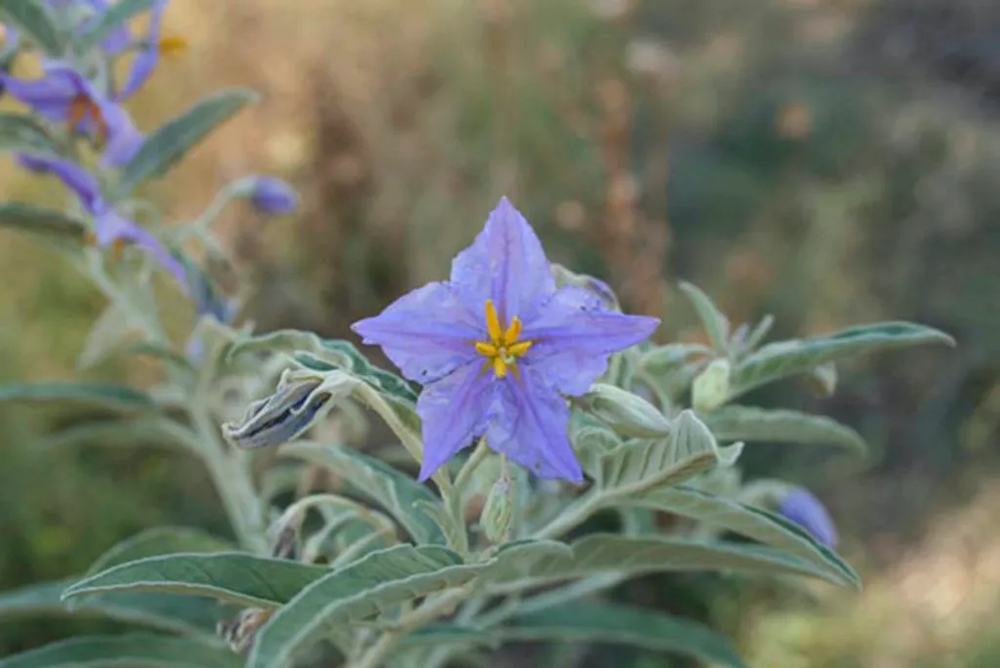"Weed Highways" fears summer rains could spread invasive species
Luke Williams
06 February 2024, 8:20 PM

The head of a major anti-invasive species company has warned floods and extreme weather could create weed highways.
Centre for Invasive Species Solutions CEO Andreas Glanznig told the Western Plains App that floodwaters could led to some weeds such as the cat claw creeper spreading throughout the region.
His warning comes as summer storms continue to deliver periodic dumpings of rain across the Western Plains.
Mr Glanzig said that invasive plants were a $5 billion a year problem that could be made worse across the country because of extreme weather events.
He said that there are many problem weeds – some 590 – with around 20 weeds becoming "naturalised each year".
Mr Glanzig told the Western Plains App that when a weed becomes "naturalised" it starts posing a problem for agriculture.
"We need to deal with both legacy weeds and letting in new invasive plants" he said.
First AI Weed Identification App Released
Centre for Invasive Species Solutions has just released WeedScan, Australia’s first artificial intelligence (AI) weed identification, notification and management app, launched “to help farmers, land managers, local councils, Landcare and people across Australia better manage our national and local weed burdens".

Andrew Glanznig
The mobile and web-based app is supported by the Centre for Invasive Species Solutions, Australia’s national science agency - CSIRO, the NSW Department of Primary Industries (DPI) and the South Australian, Queensland and Victorian Governments. It allows users to identify, report and map priority weeds simply by uploading a photo of the suspected weed.
Me Glanznig said the app, which has been trained on over 120,000 weed images, has the potential to make weeds identification, notification and management more efficient. A key feature is that the weeds identifiable by the app include many new and emerging priority weeds that may not be known to most people.
“Weeds management is notoriously difficult because weeds can be challenging to identify. Correct identification is the key to effective weed management. Knowing what weeds are present in our environment and where they are located informs strategies to reduce the economic, environmental and social impacts of weeds,” said Mr Glanznig.
Dr Hanwen Wu, Principal Weeds Research Scientist from NSW DPI, said WeedScan was a potential game changer which could help ramp up efforts to better manage invasive weeds.
“No other app helps users automatically identify weeds, provides instant links to local weed management information and notifies local weed control authorities of priority weeds,” said Dr Wu.
“Private and public land managers can use the app to make better use of the time and resources they outlay to protect ecosystems and primary production from weeds. This app has the potential to identify weeds early and make weed management considerably easier and more efficient.”

Silverleaf nightshade flower. Image: WeedsNSW
Dr Alexander Schmidt-Lebuhn, Senior Research Scientist at CSIRO, said WeedScan is a powerful tool, driven by a world-class CSIRO AI identification model.
“Our AI model has been trained on weed images captured by botanists who travelled the length and breadth of Australia, and then tested across Australia by a range of users such as farmers, community groups and agronomists.
“The AI has the smarts to identify hundreds of priority and other weeds to give us the edge we need in the fight to protect our natural environments and agricultural landscapes,” said Dr Schmidt-Lebuhn.
“Users simply take a photo of a suspected weed and upload it to the app. The AI model assesses the photo against verified images of weeds. Within seconds, WeedScan suggests possible plant identifications, with degrees of confidence for each suggestion.”
WeedScan can be downloaded from the App Store (iOS) or Google Play (Android). The tool can also be accessed via Weedscan's website with supporting resources including user guides and an introductory ‘how-to’ video.